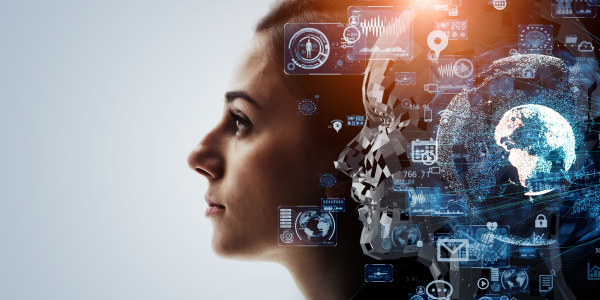In today's fast-paced world, it is essential to stay ahead of the curve when it comes to utilizing technology to streamline HR processes. That's why at NB Business Solutions, we're exploring the role of AI in HR and the top uses of AI in HR that are already being implemented today.
One of the top uses of AI in HR is recruitment. AI can assist in screening resumes and identifying the most suitable candidates for a position. This process saves time and eliminates human bias. According to a survey by Deloitte, 32% of HR teams are currently using AI to support recruiting and hiring. Another use of AI in HR is employee engagement. AI-powered chatbots can be used to engage with employees, answer questions, and provide support 24/7. A report by Oracle found that 50% of HR leaders believe that AI will have a significant impact on their talent acquisition efforts in the next five years.
Additionally, AI can help automate onboarding processes, including paperwork, training, and orientation. Finally, predictive analytics is an area where AI can provide significant benefits to HR. AI can analyze data to predict employee turnover, identify potential performance issues, and suggest solutions to improve engagement and retention.
Performance management is another area where AI can add value. AI can analyze employee performance data and provide insights that help managers make informed decisions about promotions, training, and coaching. According to a report by McKinsey, organizations that use AI in HR processes have reported a 20-30% reduction in recruitment costs and a 10-15% increase in productivity.
It is important to note that AI in HR is not just limited to streamlining processes and improving efficiency. AI is also being used in predictive ways, such as predicting whether an employee will be successful in a job or identifying flight risks. For instance, the Predictive Index uses AI to predict job performance based on behavioral and cognitive assessments. However, it is important to recognize that AI learns over time, and its predictions may not always be accurate. Therefore, HR professionals should not rely entirely on AI and should exercise human judgment and intelligence when making decisions about employees.
While AI can offer significant benefits to HR organizations, there are also several challenges and doubts to consider. Privacy concerns are a significant issue, and HR organizations must ensure that they are using AI ethically and protecting employee data. Bias is another potential issue. If AI is programmed with biased algorithms or data, it can perpetuate existing biases, leading to discrimination and inequality.
Cost is another factor to consider when implementing AI technology. According to a report by Grand View Research, the global AI in HR market size was valued at USD 1.16 billion in 2020 and is expected to grow at a compound annual growth rate (CAGR) of 24.3% from 2021 to 2028. HR organizations must ensure that the benefits of using AI outweigh the costs.
Finally, employee acceptance is another potential challenge. Employees may be resistant to new technology, and HR organizations must provide adequate training and support to ensure a smooth transition. According to the same McKinsey report, only 41% of HR professionals believe that their organizations are effectively using AI in HR processes.
To avoid the potential pitfalls of implementing AI processes in HR, organizations should conduct a thorough analysis of the current HR processes to identify areas where AI can add value. Additionally, organizations must ensure that AI is aligned with the organization's goals and values and that it is being used ethically. Provide training and support to employees to ensure that they are comfortable with the technology and can use it effectively. Monitor and evaluate the effectiveness of AI regularly and make adjustments as necessary.
In conclusion, the role of AI in HR is becoming increasingly important in today's business world. By implementing AI technology, HR organizations can streamline processes, improve efficiency, and provide better support to employees. However, organizations must also be aware of the potential challenges and pitfalls and take steps to ensure that AI is used ethically and effectively. While AI can provide valuable insights and recommendations, it cannot replace the value of human intuition and empathy. It is crucial to strike a balance between utilizing AI technology and maintaining human-centered HR practices to create a productive and fulfilling work environment. At NB Business Solutions, we are committed to providing our clients with cutting-edge HR solutions that utilize the latest technology to improve business outcomes. Contact us today to learn more about how we can help your organization leverage the power of AI in HR.
